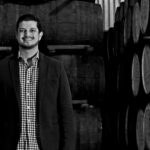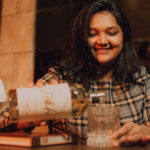CEO PDC Vinos y Licores SAS (Ron Quimbaya): ISAAC DANIEL PICCIOTTO
TRL: Who is Isaac Daniel Picciotto?
I am part of a family that has been involved in the production and distribution of wines and spirits since the early 1950s. I majored in chemical engineering and later specialized in enology. I started working for my father, alongside my brother, at our brandy distillery. Today, the next generation is involved in our family business, mainly brandy and rum production in Colombia, and wine production in Chile.
TRL: What does the rum mean to you? What made you fall in love with rum and when did it happen?
Sugarcane distillates have been around for a long time. Rum, as it was back then, results from the need for hydration on long trips, when fresh water was scarce. Sailors traveling from Europe would bring wines, usually sweet and with a high alcoholic content, stored in barrels. For the trip back, there was no wine on the islands, so rum was the only possibility, probably hydrated to a lower strength, and flavored with the residual sweet wine that was left in the barrel used for storage for the return trip. Enslaved Africans brought sugarcane to the Caribbean, and distillation skills were imported from Europe. The history, the romance, and the love of the Caribbean islands have made me passionate about rum.
TRL: Three essential characteristics that define the rum according to your perspective.
A good rum is not necessarily ancient, aging in barrels is a condiment that must be well administered. The secret to a rum is a clean fermentation, a neat distillation, and a resulting spirit that evokes sugarcane aromas.
TRL: What is the most important contribution you have made to the rum industry?
I believe that our artisanal rum project in Colombia has the potential to change the lives of many poor people in our country. According to the “Federación de Paneleros”, there are over 20,000 artisanal sugar mills in Colombia that sustain over 250,000 families of “campesinos” (farmers) which rely on panela (unrefined whole cane sugar) sales. Our project aims to inspire and train these “campesinos” to produce virgin sugarcane “honey” (cooked sugar juice), to ferment and distill artisanal rums, contributing to the birth of a new rum industry. Small batch, artisanal, pot distillation and maturation in oak barrels for short periods (in our case we used new French oak – Limousin) has fashioned a new and unique style of rum with different origins (and terroirs), that I adore.
TRL: What’s another thing you are passionate about, in addition to rum? Why?
I´m passionate about my family, reading and studying, and also sherry, brandy, and wine.
TRL: What is your favorite place for drinking rum?
My favorite place for drinking rum is somewhere I can relax, hopefully, a beach house with a view of the Caribbean Sea, or a farmhouse overlooking sugarcane plantations, next to a “trapiche” (artisanal sugar mill).
TRL: Favorite drink + Recipe
I love my rum straight up, but if on the islands, I will always prepare or order a “painkiller”.
Recipe:
1 ounce of dark rum,
1 ounce of gold rum
4 ounces pineapple juice,
1 ounce orange juice,
1 ounce cream of coconut,
freshly grated nutmeg,
Mix well and serve in a tall glass with plenty of ice – 2 ounces of any good rum will do.
TRL: Why is it important to educate the rum consumer?
Many years back, you would come up to a bar and order a dry martini, which the waiter would skillfully prepare with whatever was on the shelf. With time, we learned that there were different styles of gin and vodka. The rum universe is immense, rum is produced in Africa, south and Central America, and many Caribbean islands. Different ways of production and different styles make it important to know how your rum is made and where it comes from.
TRL: Any tips to train the palate and taste a good premium rum?
The only way to train your palate is with exercise. You need to taste as many rums as you can. This way you will be able to decide, based on your judgment, what style you like, be it aged or not, dry or sweet, dark or white.
TRL: How can the rum contribute to improving the crisis in some countries?
In the case of our country, as I mentioned before, we hope that the production of artisanal rum, very much in the same style as what now happens with mezcal, will transform life for people who live in rural Colombia.
TRL: Is the commitment to sustainable development the key to success for the permanence of the rum industry in the world? Why?
Sustainable development is the only way to produce any good rum included. We need to think of the future generations, in my case, my grandchildren. I want them to know we are contributing to bettering the environment for them and everybody else on the planet.
TRL: Plans you have when you leave the rum industry.
Why leave what you love?
TRL: What is your advice for new generations in the rum industry?
Be passionate, be honest, and mostly, be patient.
TRL: How can people learn more about you? Website? Social media page?
www.ronquimbaya.com
https://www.instagram.com/ronquimbaya/
https://www.facebook.com/RonQuimbaya
About The Author
Creative Director for EmpresasFH and Director of HOFFMANNdesign. Born and raised in Caracas, Venezuela, Mr. Hoffmann has been one of the most important designers for prestigious companies in South America, including Disney, Cartoon Network, Mattel among others.





